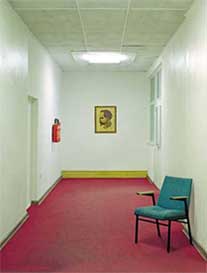 Since 2004, I have had the privilege of being the Pop!Tech House Scribe, creating large paintings and drawings while lurking in the upper balcony of the Opera House in Camden, Maine.
Since 2004, I have had the privilege of being the Pop!Tech House Scribe, creating large paintings and drawings while lurking in the upper balcony of the Opera House in Camden, Maine.
Exposure to the people and ideas that appear both on the Pop!Tech stage and in the audience have changed the course of my life. In this forum, groundshifting concepts on energy, demographics, technology, design and society are shared, and only months--or years!--later do they end up arriving as front page news announcing that a new worldview has arrived.
Now you can see and hear these exciting and sobering presntations on-line. From Andrew Zolli, Chief Curator of the annual Pop!Tech conference:

Pop!Tech, the extraordinary thought leadership forum and social innovation network that I'm involved with, has just released it's first twenty-two Pop!Casts -- free, online video and audio presentations that you can watch online or download to your iPod!Available at www.poptech.org/popcasts, and on iTunes, the Pop!Casts feature provocative and engaging presentations from leading and emerging thinkers from many different fields -- and we'll be releasing new ones ever two weeks throughout the rest of the year!

The initial batch includes fantastic presentations by such renowned folks as:
Thomas Friedman — Pulitzer Prize winning author and New York Times Columnist.
Serena Koenig — Global health leader and Director of Haiti Programs for Partners in Health
Brian Eno — One of the world's leading pop musicians
Richard Dawkins — World renowned biologist and evolutionary theorist
Zinhle Thabethe — Renowned AIDS activist from South Africa
Chris Anderson — Editor in Chief of Wired magazine and author of "The Long Tail"
Sinikithemba Choir Performance — South African Choir of Zulu men and women who provide support to persons with HIV/AIDS
Bunker Roy — Founder of the Barefoot College in Tilonia, India
Carolyn Porco — Chief Imaging Scientist on the Cassini Mission to Saturn
Erin McKean —Editor-in-chief of U.S. Dictionaries for Oxford University Press and self-proclaimed "word geek"
Juan Enriquez — Leading futurist and bestselling writer on the future of nations
Neil Gershenfeld — Director of MIT’s Center for Bits and Atoms
Jonathan Coulton — Singer/Songwriter and the official Pop!Tech Balladeer
Thomas Barnett — Strategist and expert on national security and best-selling author
Jesse Sullivan and Todd Kuiken —Jesse Sullivan and his doctor, Todd Kuiken, work together to make Jesse the world’s first bionic man
Martin Marty — One of the most prominent interpreters of religion and culture
Theo Jansen — Dutch "kinetic sculptor" who creates wind-powered robotic "animals"
Marcia McNutt — Monterey Bay Aquarium Research Institute director
Reggie Watts - Human Beat-Box Polymath Musician and Comedian
Marian Weems — Artistic director of the new media theater ensemble The Builders Association
Homaro Cantu —Inventor, entrepreneur and molecular gastronomist
Lester Brown — Preeminent environmentalist and head of the Earth Policy Institute
Kent Nichols — Co-Creator of the wildly popular website and podcast AskaNinja.com
These Pop!Casts are brimming with ground-breaking ideas, and are being made available to the world with the help of our friends at Lexus, with production support from Yahoo! To encourage their distribution, we're releasing all of these as open-source, non-commercial Creative-Commons licensed content.
You can also subscribe to Pop!Casts within iTunes -- available by going here:
http://phobos.apple.com/WebObjects/MZStore.woa/wa/viewPodcast?id=251125472
 From PopTech 2004, Malcolm Gladwell takes the lessons of psychology and sociology and applies them to business in ways we’ve never thought of before. Here, he deep-dives into the world of office chair invention and soft drink taste tests to answer the question, “Can we believe what people tell us?”
From PopTech 2004, Malcolm Gladwell takes the lessons of psychology and sociology and applies them to business in ways we’ve never thought of before. Here, he deep-dives into the world of office chair invention and soft drink taste tests to answer the question, “Can we believe what people tell us?”































